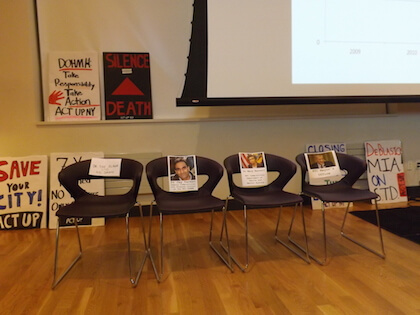A pharmaceutical company that produces an anti-diarrhea drug to treat side effects of HIV/ AIDS medication raised the price on that drug by more than three times after pushing it as an option to treat diarrhea in coronavirus patients.
Jaguar Health previously charged $669 for 60 pills of Mytesi, the brand name for crofelemer, which is for individuals on antiretroviral drugs including Remdisivir, which can cause diarrhea. But the price was increased to $2,206, Axios reported.
There was speculation that Remdesivir, which is produced by Gilead, could have been an effective treatment to help those fighting the coronavirus. But those hopes were dashed when Gilead announced on April 23 that it ended an experimental trial early after there was not enough evidence to support the drug’s ability to treat the coronavirus.
Last month, Jaguar Health sought out FDA approval of Mytesi as a way to treat coronavirus patients suffering from “diarrhea associated with certain antiviral treatments.” An important question is whether the price hike on Mytesi was motivated by speculation that wider distribution of Remdesivir could have, in turn, generated strong demand for Mytesi.
The timeline of Jaguar Health’s actions sheds some light on that question, but not much. While the price of the drug was not raised until April 9, two days after the FDA turned down Jaguar Health’s application for approval of the drug, the company remains in talks with the National Institutes of Allergy and Infectious Diseases regarding Mytesi and its possible use in the fight against the coronavirus, according to Axios.
In an email, Jaguar Health told Gay City News that the decision to raise the price of Mytesi was made before the coronavirus outbreak in order “to support our efforts to remain a financially sustainable company and to continue providing Mytesi to HIV patients in need.”
Speaking to Axios, Jaguar Health CEO Lisa Conte blamed health insurance companies for keeping the drug out of reach for consumers.
“The reimbursement barriers are so huge,” Conte told Axios. “It’s impossible for us to make a business out of it,” Conte said.
Jaguar Health has been facing financial strain as of late, according to the company’s own statements and tax documents indicating that the company’s future is in serious jeopardy.
“The company, since its inception, has incurred recurring operating losses and negative cash flows from operations and has an accumulated deficit of $133.0 million as of December 31, 2019,” Jaguar Health documents recently filed with the federal Securities and Exchange Commission stated. “The company expects to incur substantial losses and negative cash flows in future periods. Further, the company’s future operations are dependent on the success of the company’s ongoing development and commercialization efforts, as well as the securing of additional financing and generating positive cash flows from operations. There is no assurance that the company will have adequate cash balances to maintain its operations. In addition, as a result of the recent outbreak of novel COVID-19 (see Note 15), the company may experience disruptions in the fiscal year 2020 and beyond that could severely impact its supply chain, ongoing and future clinical trials, and commercialization of Mytesi.”
The leader of Treatment Action Group (TAG), which is an activist and community-based research and policy think tank focused on HIV/ AIDS, tuberculosis, and hepatitis C, told Gay City News that there is still no good reason why the price of Mytesi should have been jacked up so high, especially considering that no data has indicated that it could be effective against the coronavirus.
“It appears that Jaguar Health is a company tottering on the edge of bankruptcy, which, whether from desperation or cynicism, is trying to repackage crofelemer — a relatively unsuccessful treatment for HIV-associated diarrhea — into a wonder drug for COVID-19 associated diarrhea,” Mark Harrington, TAG’s CECO, said in an email to Gay City News.
He continued, “I’m not aware of any clinical data which would justify the more than tripling of the price of crofelemer. Hence, I believe that the attempt to associate the drug with COVID-19 and seek an emergency authorization from the US Food and Drug Administration (FDA) for its use in this connection may be more likely attributable to the company’s fragile financial situation as indicated in its most recent SEC 10-K filing.”
To sign up for the Gay City News email newsletter, visit gaycitynews.com/newsletter.

































